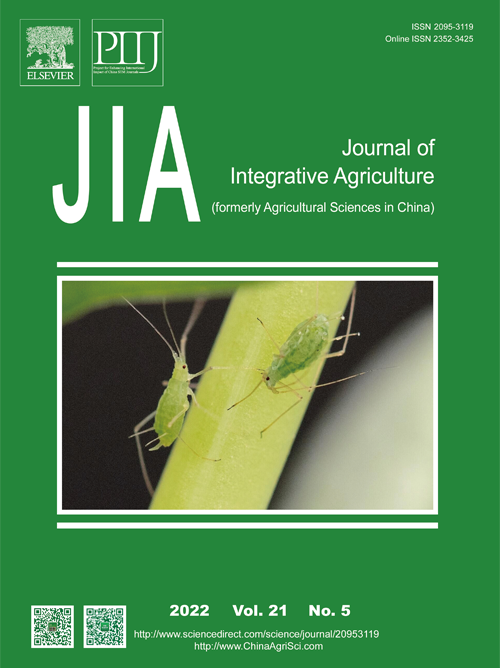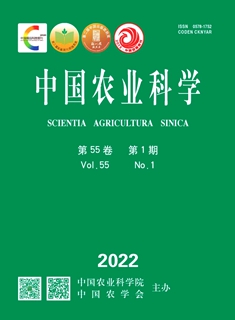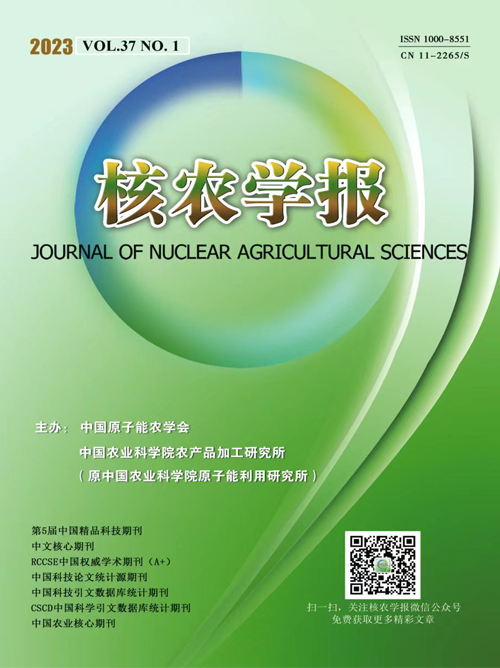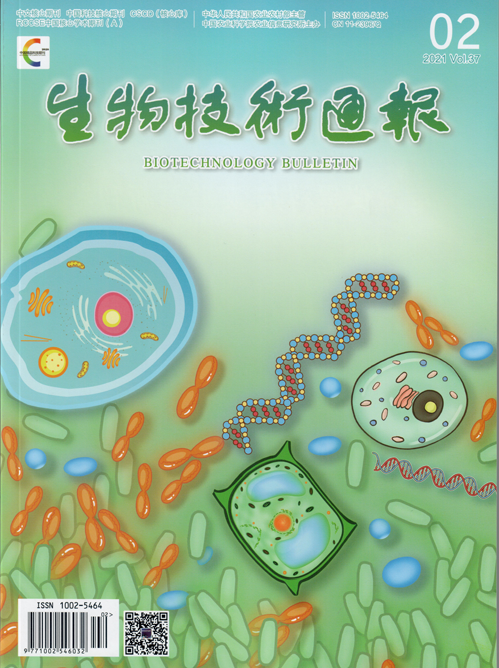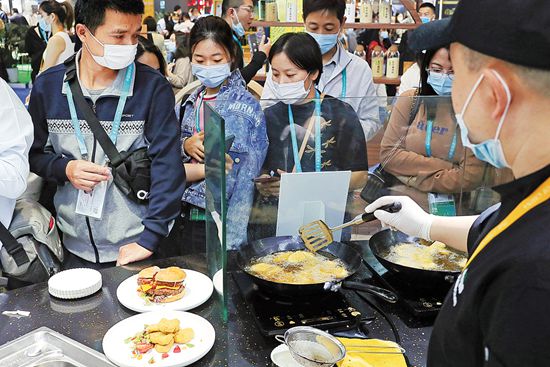
Visitors wait to taste synthetic meat dishes offered by an exhibitor from the United States during the third China International Import Expo in Shanghai in November 2020. ZHANG HENGWEI/CHINA NEWS SERVICE
With food security high on nation's agenda, agronomists explore how to feed nation without relying upon imported grain
Developing plant-based and cell-based meat to partly substitute the protein people get from animals is a helpful way to reduce grain imports and ensure national food security, experts said.
Chinese people have increased needs for food protein and have been changing their way of consumption from merely animal meat to using both animal and plant-based meat, an agronomist with the Chinese Academy of Agricultural Sciences said.
Wang Fengzhong, director of the academy's Institute of Agro-Products Processing Science and Technology, said people's increasing demands of food protein have resulted in the country's reliance on soybean imports.
Last year, China imported 96.5 million metric tons of soybean, accounting for 85.5 percent of total consumption. Wang said about 22 percent of the imported soybean was used in food oil while the rest was consumed as animal fodder.
People ingest animal protein by eating meat. So using soybean and pea protein, as well as artificially synthesized protein, as substitutes of animal protein can greatly reduce the country's need for animal feed and thus cut down on grain imports, Wang said.
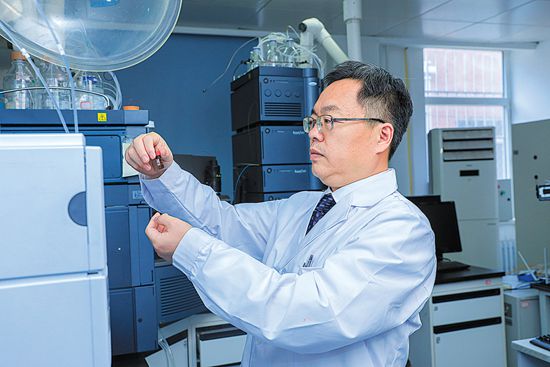
Wang Fengzhong works in his laboratory at the Chinese Academy's Agricultural Sciences' Institute of Agro-Products Processing Science and Technology in Beijing. CHINA DAILY
For instance, 50 kilograms of soybean protein as forage can produce 8.8 kg of beef protein and 13.5 kg of chicken protein. "If soybean protein was not transferred into animal protein, but directly ingested by humans, we can reduce the protein loss in the process," Wang said.
Although China has expanded the combined plantation of soybean and corn this year, which is expected to increase the total soybean output, the self-sufficiency rate still cannot reach 25 percent.
"Developing plant-based meat and other protein substitutes plays an important role in indirectly reducing soybean imports," he said.
The protein substitutes business in China has been burgeoning in recent years, with emphasis from central authorities.
President Xi Jinping said during this year's two sessions that China should develop biotechnology and try to get protein from plants and microorganisms.
The 14th Five-Year Plan (2021-25) for science and technology development in agriculture and rural areas was released in January, proposing, for the first time, to research cell-cultured meat and other artificially synthesized proteins.
The National Development and Reform Commission announced last month that the country will develop food with artificially synthesized protein during the 14th Five-Year Plan to upgrade the food industry and alleviate environmental pressure caused by traditional animal breeding.
While cell-based meat is still in its initial phase of scientific research in China, plant-based meat has been commercialized and proven to be safe.
Plant-based meat tries to mimic the texture and taste of animal meat. "The nature of protein in plant-based meat and animal meat is not different, except that animal protein is more delicious and is easier to absorb by the human body," Wang said.
The institute has been tackling the technical difficulties of making textured soybean protein.
"We have succeeded in the laboratory and will industrialize the results through better integrating science and technology," Wang said.
"Most plant-based meat products taste like chicken and beef when chewing roughly but the flavor of soy products can remain. Plant-based meat is safe because it has no veterinary drug residues or antibiotics, which is not advocated by vegetarians and environmentalists.
"However, it can only be a choice for people's various protein needs and will never replace animal meat," Wang added.
zhaoyimeng@chinadaily.com.cn




